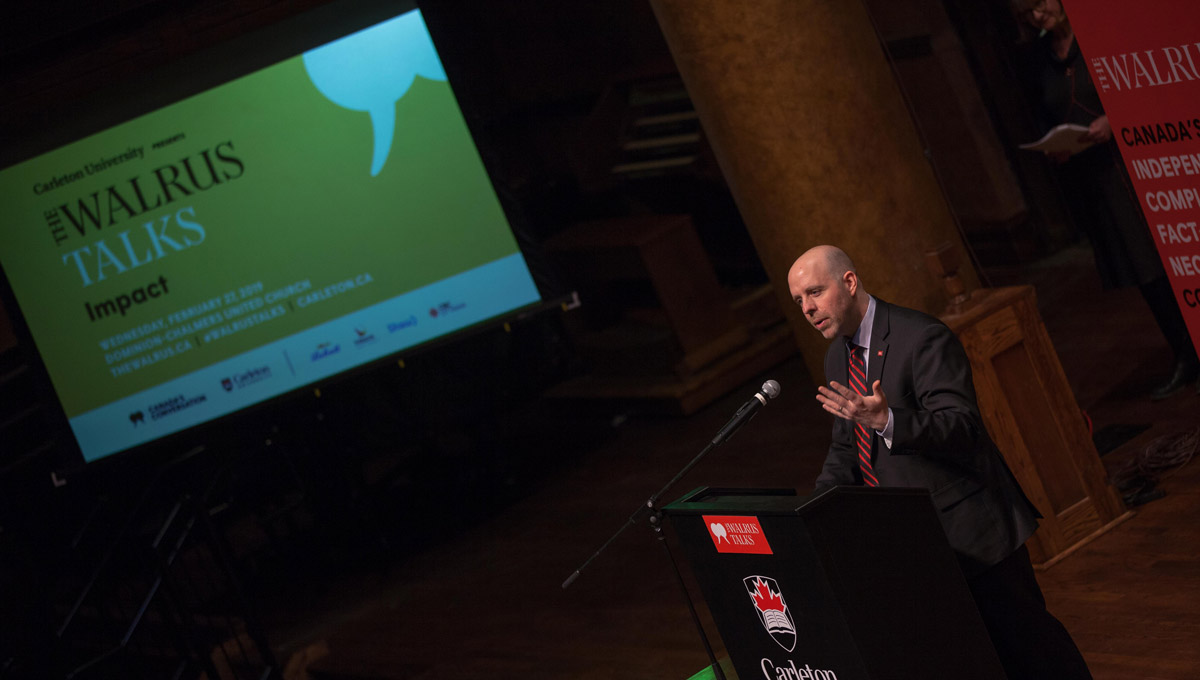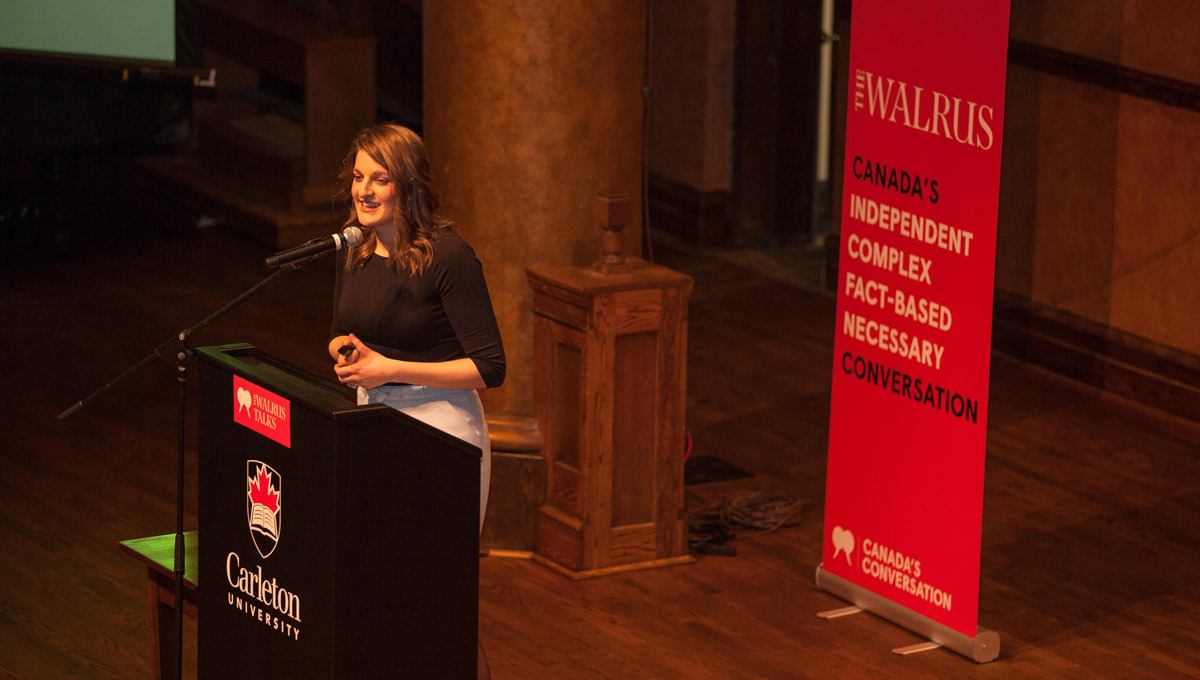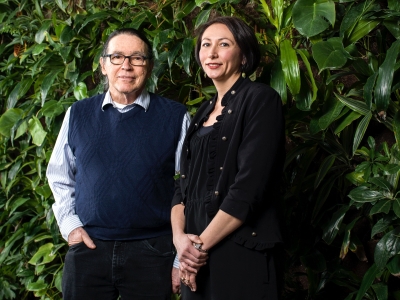By Elizabeth Howell
Photos by Fangliang Xu
The future of philanthropy requires finding ways to engage millennials and new donors with institutions, said several speakers at a discussion co-hosted by Carleton University on the “new landscape” of philanthropy on Wednesday (Feb. 27).
Carleton and magazine The Walrus partnered on this latest edition of the national event series, “The Walrus Talks.” This most recent edition was held at Dominion-Chalmers United Church, now owned by Carleton, on Feb. 27, 2018.
“We recognized that Canada’s conversation is complex and necessary and thus takes many forms,” Shelley Ambrose, executive director and publisher of The Walrus, said of the decision of the magazine to host a website, podcast and talk series. Hundreds of community members and donor filled the church pews.

Carleton President Benoit-Antoine Bacon
Carleton President Benoit-Antoine Bacon said these type of forums strengthen dialogue on issues of the day. “[The Walrus] is a true leader in fostering open debates and insightful thinking on issues that matter to Canadians,” he said in a speech. “This is a goal that we obviously deeply, deeply share at Carleton.”
Each speaker gave a seven-minute talk on “smart philanthropy,” which includes ensuring a donation has impact and promotes meaningful change.

Moving People Profoundly
Carleton alumnus Rita Celli, host of the provincewide CBC show Ontario Today, said that while she dislikes the word “impact,” she recognizes that there are similarities between trying to get people to donate and successfully getting people to call into a radio show. She said her goal is to move people “so profoundly” with local stories that they are encouraged to get involved and call in – a goal that philanthropic organizations share.
High net-worth families in Canada are giving less as a percentage of their income than middle- and low-income Canadians, said Susan Phillips, a Carleton professor with the Philanthropy and Nonprofit Leadership Program.
While she acknowledged housing costs may play a role, she said wealth advisers could raise awareness about economical options for these families – such as donor-advised funds. “Technology has created new means of giving, and big data is everywhere. All of this creates new opportunities and challenges for philanthropy,” she said.
Ensuring Money Goes to the Right Spot
Many of the speakers urged donors to speak with the communities they are interested in supporting to ensure the money goes to the right spot.
“When I was asked to speak, the first thing I thought about – when I thought about impact – was how harmful the arrival of settlers was on these territories, for my people,” said Justin Wiebe, a Michif (Metis) from Saskatoon in Treaty 6 and Metis Territory who currently lives in Toronto (in territories covered by the Dish with One Spoon Wampum Belt covenant). He works for the Ontario Trillium Foundation in the Youth Opportunities Fund as a capacity-building specialist.
Wiebe urged donors to engage in dialogues with their communities. In his own role, Wiebe said that two Indigenous organizations have been influential: The Giving Circle and the Ontario Indigenous Youth Partnership Project.
The full list of participants included:
- Kaite Burkholder Harris – BSW/09, community planning officer at the Canadian Observatory on Homelessness
- Rita Celli – BJ/91, host of CBC’s Ontario Today
- Ruth MacKenzie – president and CEO of the Canadian Association of Gift Planners
- Susan Phillips – Carleton professor with the Philanthropy and Nonprofit Leadership Program
- Jenna Richards – MA/14, artistic administrator for the Ottawa Chamber Music Society
- Rob Sobey – corporate director and philanthropist
- Justin Wiebe – capacity building specialist at the Ontario Trillium Foundation
You can learn more about The Walrus Talks at TheWalrus.ca or by using the social media hashtag, #walrustalks.



